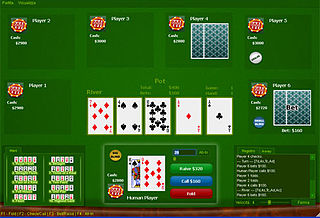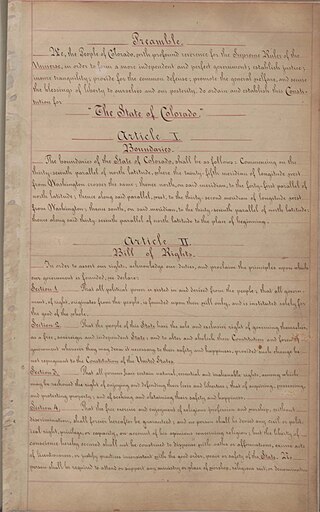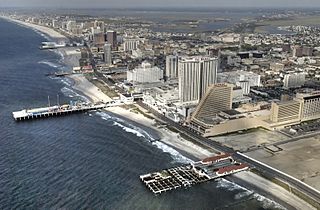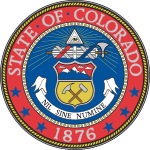Distribution of revenue
Casinos pay taxes on income from gaming and also pay various fees and fines. Last year, the state collected $112 million from gaming, an effective tax rate of 14 percent. After paying to enforce gaming laws, approximately one-quarter of the gaming money goes back to the gaming cities and counties, about one-quarter goes to historic preservation and restoration projects across the state, and half of the revenue is allocated to the state legislature to spend on programs. These programs currently include assistance to local governments for gaming impacts, tourism promotion, economic development programs, energy efficiency, and renewable energy projects, and highway projects.
Amendment 50 distributes new money from increased gaming activity differently from existing law. First, the casinos keep 86 percent. The 14 percent in tax revenue is then used to pay to enforce gaming laws related to any changes in the limits. Second, some of the new money provides annual increases to the programs and local governments that currently get gaming money. The rest is distributed as follows:
- 78% for financial aid and classroom instruction at Colorado community, junior, and district colleges based on each school's number of students
- 12% to Gilpin and Teller Counties, based on the proportion of the new money raised within each county, to help address the impacts of gaming
- 10% to Central City, Black Hawk, and Cripple Creek, based on the proportion of the new money raised within each town, to help address the impacts of gaming
Estimated distribution of new gaming money under Amendment 50 in millions of dollars [1] [4] | Amendment 50 Recipients | Year 1 | Year 2 | Year 3 | Year 4 | Year 5 |
|---|
| Additional money to current recipients | $2 | $3 | $4 | $4 | $5 |
|---|
| Community colleges | $29 | $32 | $46 | $52 | $63 |
|---|
| Black Hawk, Central City, and Cripple Creek | $4 | $4 | $6 | $7 | $8 |
|---|
| Gilpin and Teller Counties | $4 | $5 | $7 | $8 | $10 |
|---|

Cripple Creek is a statutory city that is the county seat of Teller County, Colorado, United States. The city population was 1,155 at the 2020 United States Census. Cripple Creek is a former gold mining camp located 20 miles (32 km) southwest of Colorado Springs near the base of Pikes Peak. The Cripple Creek Historic District, which received National Historic Landmark status in 1961, includes part or all of the city and the surrounding area. The city is now a part of the Colorado Springs, CO Metropolitan Statistical Area and the Front Range Urban Corridor.

Central City is a home rule municipality located in Gilpin and Clear Creek counties, Colorado, United States. Central City is the county seat and the most populous municipality of Gilpin County. The city population was 779, all in Gilpin County, at the 2020 United States census. The city is a historic mining settlement founded in 1859 during the Pike's Peak Gold Rush and came to be known as the "Richest Square Mile on Earth". Central City and the adjacent city of Black Hawk form the federally designated Central City/Black Hawk Historic District. The city is now a part of the Denver–Aurora–Lakewood, CO Metropolitan Statistical Area and the Front Range Urban Corridor.
Spread betting is any of various types of wagering on the outcome of an event where the pay-off is based on the accuracy of the wager, rather than a simple "win or lose" outcome, such as fixed-odds betting or parimutuel betting.

Native American gaming comprises casinos, bingo halls, slots halls and other gambling operations on Indian reservations or other tribal lands in the United States. Because these areas have tribal sovereignty, states have limited ability to forbid gambling there, as codified by the Indian Gaming Regulatory Act of 1988. As of 2011, there were 460 gambling operations run by 240 tribes, with a total annual revenue of $27 billion.

A bookmaker, bookie, or turf accountant is an organization or a person that accepts and pays out bets on sporting and other events at agreed-upon odds.

Black Hawk is a home rule municipality located in Gilpin County, Colorado, United States. The population was 127 at the 2020 United States Census, making it the least populous city in Colorado. It was a mining settlement founded in 1859 during the Pike's Peak Gold Rush and is now a part of the Denver-Aurora-Lakewood, CO Metropolitan Statistical Area and the Front Range Urban Corridor.

Online gambling is any kind of gambling conducted on the internet. This includes virtual poker, casinos, and sports betting. The first online gambling venue opened to the general public was ticketing for the Liechtenstein International Lottery in October 1994. Today, the market is worth around $40 billion globally each year, according to various estimates.

In the United States, gambling is subject to a variety of legal restrictions. In 2008, gambling activities generated gross revenues of $92.27 billion in the United States.
Mobile gambling refers to playing games of chance or skill for money by using a remote device such as a tablet computer, smartphone or a mobile phone with a wireless internet connection. Over a hundred mobile casinos were operating as of December 2013, with most of the big casino operators in gambling now providing a mobile platform for their player base.
The Central City Parkway is a four-lane, 8.4 miles (13.5 km) highway in Clear Creek and Gilpin counties in Colorado, United States, that connects Interstate 70/U.S. Route 6/U.S. Route 40, immediately south of Central City with Nevadaville Road and Nevada Street in the historic mining town and gambling area of Central City. Opened on November 19, 2004, the Parkway provides direct access to Central City. The length of the Parkway can be traveled in about twelve minutes. As part of the opening ceremonies in 2004, 1996 Indianapolis 500 winner, Buddy Lazier, made the trip from I-70 to Central City's historic downtown in three minutes.

The Constitution of the State of Colorado is the foundation of the laws and government of the U.S. state of Colorado. The Colorado State Constitution was drafted on March 14, 1876; approved by Colorado voters on July 1, 1876; and took effect upon the statehood of Colorado on August 1, 1876. As of 2020, the constitution has been amended at least 166 times. The Constitution of Colorado derives its authority from the sovereignty of the people. As such, the people of Colorado reserved specific powers in governing Colorado directly; in addition to providing for voting for Governor, state legislators, and judges, the people of Colorado have reserved initiative of laws and referendum of laws enacted by the legislature to themselves, provided for recall of office holders, and limit tax increases beyond set amounts without explicit voter approval, and must explicitly approve any change to the constitution, often with a 55% majority. The Colorado state constitution is one of the longest in the United States.

Bet365 is a British gambling company founded in 2000. Its product offering includes sports betting, online casino, online poker, and online bingo. Business operations are conducted from its headquarters in Stoke-on-Trent, alongside a satellite office in Malta. It was founded by Denise Coates, who remains the majority shareholder and joint-chief executive, alongside her brother John Coates.
Vernon Downs is a horse racing track, racino and entertainment facility located in the town of Vernon in central New York, United States. The track was established in 1953 and in 1955 was the location that Adios Harry ran his "Miracle Mile". As tastes changed and competition increased, its attendance and revenues decreased. It has added simulcast harness racing, video gaming, and entertainment, in addition to building a 173-suite hotel.
Gambling in South Africa has been heavily restricted since 1673, with South Africa's Gambling Act of 1965 officially banning all forms of gambling except betting on horse racing which existed as a sporting activity.
Indiana law authorizes ten land-based or riverboat casinos on Lake Michigan and the Ohio River, one land-based casino in French Lick, and racinos at the state's two horse tracks. In addition, there is one Indian casino in the state. Other forms of legal gambling are the Hoosier Lottery, parimutuel wagering on horse races, and sports betting.
Gambling in Pennsylvania includes casino gambling, the Pennsylvania Lottery, horse racing, bingo, and small games of chance conducted by nonprofit organizations and taverns under limited circumstances. Although casino gaming has been legal for less than two decades, Pennsylvania is second only to Nevada in commercial casino revenues.

Gambling is an activity undertaken by many Australians. In 2022, 72.8% of Australian adults gambled within the previous 12 months and 38% of Australian adults gambled at least once per week. In 2017, Australians were estimated to lead the world with the highest gambling losses on a per-capita basis. Australians spend more on online gambling than any other country in the world.

Gambling in New Jersey includes casino gambling in Atlantic City, the New Jersey Lottery, horse racing, off-track betting, charity gambling, amusement games, and social gambling. New Jersey's gambling laws are among the least restrictive in the United States. In 2013, the state began to allow in-state online gambling. Five years later in 2018, the state won a lawsuit that dismantled Nevada's monopoly on legal sports betting.

Hollywood Casino Columbus is a casino located in Columbus, Ohio. It opened on October 8, 2012 and is owned by Gaming and Leisure Properties and operated by Penn Entertainment.













